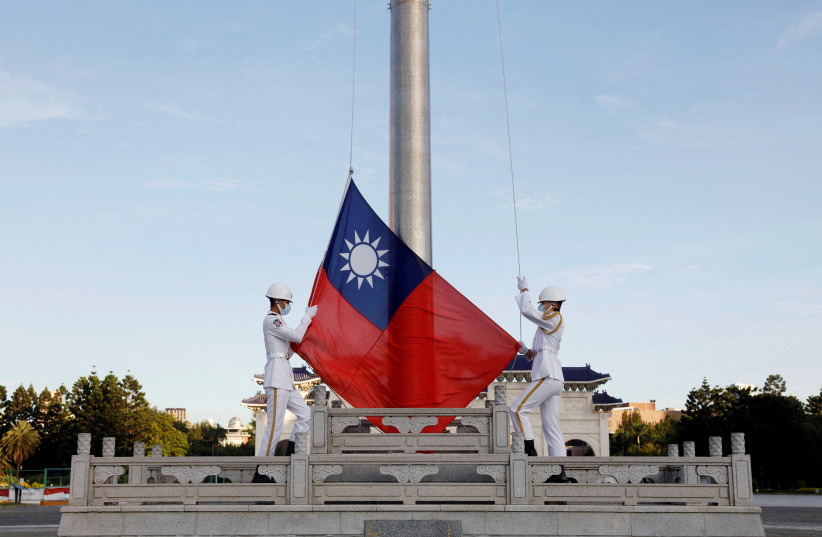The people of Taiwan have cast their vote, and Lai Ching-te, the presidential candidate of the Democratic Progressive Party (DPP), won.
In the political spectrum of Taiwan, the DPP is the party that most clearly emphasizes an interest in implementing and developing further a policy of autonomy, if not even independence, vis-à-vis China. Not surprisingly, the People’s Republic of China reacted nervously, asserting in public that “Taiwan is China’s Taiwan,” which represents the official state doctrine of the People’s Republic of mainland China to integrate Taiwan back into China.
China’s president, Xi Jinping, leaves no doubt about this. In fact, there was an incident in recent times that could have acted as a role model, namely Hong Kong. The formula used was “one country” but “two systems.”
For a while, this also functioned in that a status of autonomy was granted to Hong Kong, basically continuing its liberties (for example, intellectually, academically, and media-wise). However, the mode of integration later shifted in parallel to a re-autocratization of the overall political system in China.
Step-by-step, the liberties were taken away from Hong Kong, and Hong Kong stopped serving as a potentially productive role model for Taiwan.

Therefore, this was a fundamentally missed window of opportunity for China’s future relationship with Taiwan because it was made clear that an integration of Taiwan into China would not be a reintegration, but a forceful assimilation (“one country, one system”).
A possible "invasion of Taiwan"
There is speculation as to how China might mastermind an “invasion of Taiwan.” A “full-blown” invasion is only one option. But more realistically, the hypothesis for the moment appears to be a scenario of varying degrees of semi-flexible sea and air blockades: not completely shut but only temporarily implemented, with the purpose being to test Taiwanese and American reactions.
The first stage of such measures is to continuously violate the air and sea space of and around Taiwan with Chinese military aircraft and Chinese navy vessels. This equals a grand strategy of “political pressure psychology” imposed by China on Taiwan. China only would put a “full-blown invasion” of Taiwan into effect when China assumes a major window of opportunity, such as, for example, signs of weakness from Taiwan or the US.
One crucial question, of course, is: Does the US really have the conventional military means to deter and counter a comprehensive invasion of China against Taiwan? Several war-game scenarios have already been elaborated, including as recently as that of the Washington-based think tank Center for Strategic and International Studies (CSIS). The CSIS war game concludes that the US would win such a direct military confrontation but would pay a high price in casualties.
What the US is facing is the “military risk” of a direct confrontation with China. The backbone of American sea power are their aircraft carriers. In the age of long-range missiles and rockets, are aircraft carriers as effective as they were in the past?
You cannot hide aircraft carriers on the sea; satellite images provide precise location footage, and China could be tempted to deploy “carrier killer ballistic missiles.” The US has the capacity to attack air bases in mainland China, but even if hit, the air bases would not sink in an “open ocean.” So, is it possible that the US could lose a battle over Taiwan if fought with conventional military means?
Conversely, China is facing a dramatic economic risk. The economy of China is heavily dependent on its ability to export over seaways. In the event of a direct military confrontation with the US, the Americans could follow the strategy of attacking the key ports with their facilities in mainland China and perhaps attempt to block the seaways that are crucial for China.
This may also be part of a general economic strategy and master plan for banning Chinese products and services from being imported into the United States or the EU. The consequences for the Chinese economy would be devastating. Obviously, in the aftermath, it would also create spillovers and shock waves for the world economy.
This demonstrates that the military risk for the Americans stands vis-à-vis an economic risk for the Chinese, so both global powers could lose equally – one in the military sphere, the other economically.
The Biden-Taiwan Doctrine has been, so far, not to make American behavior predictable in simple terms for China because if the Chinese assume that if it invades Taiwan, the US would not intervene, this could be interpreted as an invitation to China to do so. However, Biden also indicated that the US would consider deploying direct military force to confront China’s potential invasion ambitions. Already, back in September 2022, Biden used clear words in this context.
It is rational to assume that the recent presidential election result in Taiwan will not change the course of US foreign policy. Will it have an effect on the foreign policy of the People’s Republic of China, under the leadership of Xi Jinping?
As long as Taiwan does not “provoke” mainland China with a unilateral “declaration of independence,” probably not, at least not in the near future. China may experiment further with strategic war-game scenarios, but instead, it may be inclined to see whether the US glides into an institutional crisis as a consequence of the upcoming presidential election in November 2024 that could result in an unclear outcome and a showdown of Biden versus Trump 2.0.
Should China interpret this as a crucial sign of weakness of the major Western power, then it may be tempted to engage more forcefully against Taiwan.
Of course, the best war-game scenario is one that eventually prevents the outbreak of war.
The writer is a lecturer and privatdozent at the Department of Political Science of the University of Vienna. His articles on innovation, economy, and democracy have been published in several international journals.
